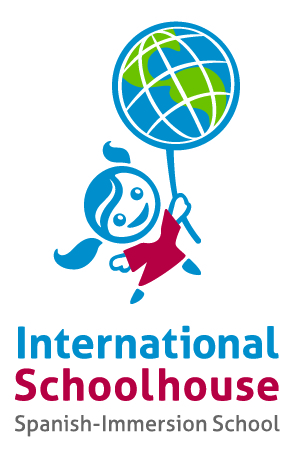Frequently Asked Questions
What is language-immersion education?
Children are capable of learning a second language much in the same way they learn their first — by being surrounded by it. At International Schoolhouse, children will explore knowledge and concepts in a rich and stimulating environment where all activities are conducted in Spanish. Teachers speak only the target language in the classroom, using a wide range of instructional strategies that focus on subject-matter learning. The end goal is for our students to achieve oral fluency by age five, before kindergarten.
Language immersion programs have been growing at a steady pace across the United States since the early 1970s. The Center for Applied Linguistics, a private nonprofit organization, tracks language programs and reports that there are at least 263 schools operating in 33 states with one or more language offerings. Spanish is the most frequently taught language.
How will learning a second language affect my child?
Extensive research has shown that learning a second language enriches a child’s first language development and provides an enhanced sense of global awareness, linguistic confidence and learning strategies that are useful in many aspects of life. Research findings indicate the following:
- Early language study results in greater skills in divergent thinking and figural creativity. (Landry, 1973)
- Children in effective early second language programs show overall gains on standardized tests of basic skills, and derive additional cognitive, social and affective benefits. (Taylor-Ward, 2003)
- Learning another language can enhance knowledge of English structure and vocabulary. (Curtain & Dahlberg, 2004)
- Children that learn additional languages show greater cognitive flexibility, better problem solving and higher order thinking skills. (Hakuta, 1986)
Will Spanish immersion hinder my child's English language skills or integration into the regular school system?
No. All skills and concepts learned in the second language, transfer to the native language. In fact, research indicates that children who study a foreign language develop a better understanding and command of their native language in the long-run. The curriculum at International Schoolhouse will exceed all standards for early childhood education as stipulated by the Missouri Department of Education; our graduates will have mastered all the traditional preschool concepts, and in addition, they will have an excellent command of Spanish.
What if I don't speak Spanish? How will I be able to reinforce the language at home?
It is not necessary to speak Spanish at home in order for your child to successfully acquire the language. During his or her time at school, your child is “swimming” in the Spanish language. The frequency and length of our program, along with the one-on-one attention your child will receive at International Schoolhouse will provide the necessary exposure he or she needs in order to achieve oral fluency.
Of course, more is always better and, luckily, a variety of media in Spanish is readily available. There are many age-appropriate options that you can explore, such as books, music, movies, software, etc. The school will provide you with a list of additional resources that you can use at home with your child.
Why enroll my child at International Schoolhouse?
You value the importance of being bilingual. Beyond the many cognitive benefits, Spanish is becoming a more prevalent language in the U.S. and Missouri every day. Given the demographic trends and projections for the future, you want to provide your child with the skills to interact more effectively in an increasingly globalized and diverse world.
International Schoolhouse is a unique experience for your child!
“Over three decades of studies consistently show that immersion students achieve as well as or better than non-immersion peers on standardized measures of verbal and mathematics skills administered in English.”
Where can I learn more about language acquisition?
The following academically-recognized organizations provide research based information on language acquisition.
American Council on the Teaching of Foreign Languages (ACTFL)
Center for Advanced Research on Language Acquisition (CARLA)





